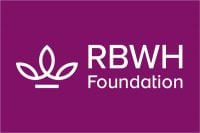
The research into the long-term medical issues facing survivors of COVID-19 is one of the first projects to be funded by the Royal Brisbane and Women’s Hospital Foundation Coronavirus Action Fund.
A total of nine COVID-19 grants have been awarded with some analysing the unprecedented changes in the way RBWH delivers healthcare as a result of the pandemic.
“We wanted to ensure that the Foundation’s COVID-19 grants covered a wide range of COVID-19 research areas,” RBWH Foundation CEO Simone Garske said.
“Researching the long-term effects of COVID-19 is incredibly important and some of the other research projects include the impact of life-support equipment on COVID-19 drugs, the impact of telehealth on patient care and an analysis of the length of time clinicians can wear PPE without taking a break.”
RBWH Principal Research Fellow and Specialist Cardiopulmonary Physiotherapist, Dr Jennifer Paratz, will analyse the progress of 200 RBWH COVID-19 patients over a six-month period to investigate ongoing medical issues.
“To date, COVID-19 attention has focused on containing transmission, managing the severe and critically ill patients, and preventing deaths,” Dr Paratz said.
“Reports from China, Europe and the UK document significant effects on pulmonary, cardiac, functional, cognitive and psychological systems. These effects are worse in those severely affected by COVID-19 but can still be present in milder cases.”
The study will also assess potential need for referral and rehabilitation programs, post-recovery.
Brisbane retired law lecturer Anne Wallace was one of the first people in Australia diagnosed with COVID-19. She tested positive and was hospitalised while on holiday in Tasmania in March before travel restrictions and quarantines were introduced. Crippling fatigue and ‘brain fog’ continued for about four months post-recovery.
“It certainly wasn’t ‘two weeks and you’re over it’,” Anne said.